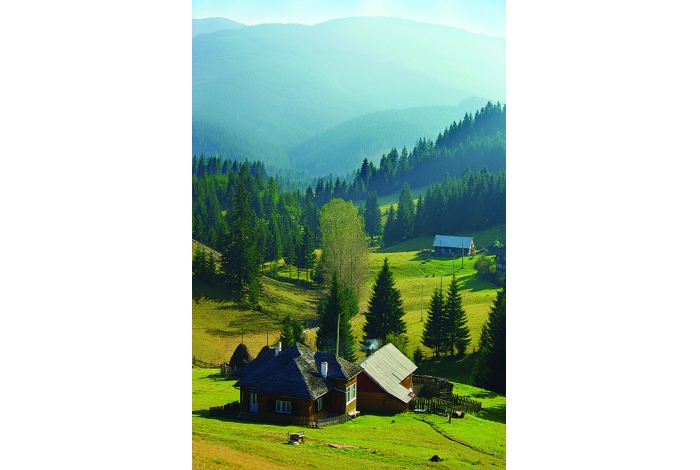Preserving Traditional Romania
Come and visit Romania. You'll discover that the heart of this country can be found at the countryside, where traditions are still kept alive.

Fundatica Village - Photo by Brodie Robertson
Most Romanian villages are stuck in past times. They seem to be moving nowhere, separated from the rest of the world, lost in their own tranquillity. You may think this is a bad thing: I mean, in the Western world, who could imagine living in a place with limited internet connection or barely any mobile phone reception, after spending most of our lives in a world dominated by new technologies and wireless communication? Some Romanian villagers are deprived of so many things, they must be so unhappy. Their life-long goal must be to escape the ghost-towns they live in to find a job in one of the many business buildings located in crowded and buzzing cities. So do villages serve any purpose?
Most of us have childhood memories of long hazy summer days playing outside with our friends, lying in freshly cut grass gazing up at the clouds above wandering what animal they resemble most. Perhaps you spent afternoons down by a riverside, organizing pebble-throwing competitions or trying to catch the fish you could see through the cold, crystal-clear water. I remember losing track of time speaking to my best friend in a field of daisies as we were gathering flowers for our neighbour or building a tree house in some woods close to our house. And who hasn’t closed their eyes, took a deep breath of fresh air and enjoyed the rare silence, as a soft breeze gently caressed our rosy cheeks and the sun set behind a rolling green hill?
Nestled in the Transylvanian landscapes lies numerous small villages in which people can live the experiences recited previously on a daily-basis. Here, the roads are not cemented, there are very few cars, geese and hens all roam freely around the streets and the gentle chiming of the bells around the cows’ necks and the clip-clop of horses over a nearby-by bridge is all the noise you can hear. In these villages, only a few hundred people reside in the centuries-old houses, but this in no way reflects a flaw in the country lifestyle: it just means that the sense of community and unity is enhanced even more. People here respect and appreciate one another. They take time to speak to one another, laugh or cry with one another, pushing whatever else they had planned for the afternoon aside. In this stress-free environment neighbours come round to see how you are doing, if you are feeling better or if you have need of anything or if you have been injured in some way, a kind neighbourly act that people don’t see very often in busy cities.
In these well-preserved villages, traditions that vanished from town-people’s thoughts years ago are still being kept alive today. Some women still weave on a traditional loom and create amazing embroideries that can only be described as pieces of art, others centre their talents on their amazing cooking abilities in order to provide their family with a good and healthy traditional meal every night. Wood-carvers proudly talk about the many symbols and meanings behind every carved door-frame while shepherds tend to their flocks in the nearby fields to prevent any of them from becoming scared and lost.
During my entire stay in Romania, I have been told that the heart of a country can be found in the village. Nothing describes a country more than its traditions, its people and its landscapes. If you take away these villages, the centuries-old traditions and the people who represent them, a piece of the country’s culture will be lost forever. All in all, these villagers may not have the latest laptop, the fastest car or even the new fashionable pair of shoes but they have something that many other countries lost years ago: pride and joy in the knowledge that they are the ones who are keeping some precious aspects of past days alive. Don’t you want to be a part of it too?
by Brodie Robertson




